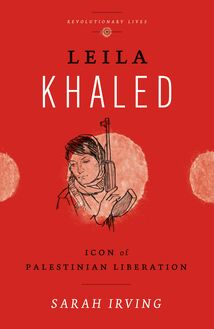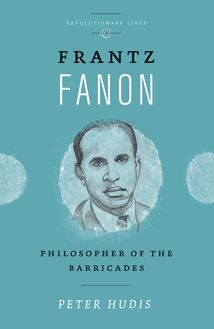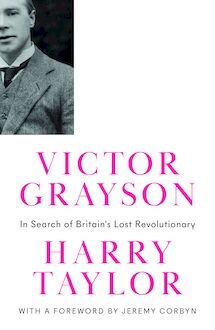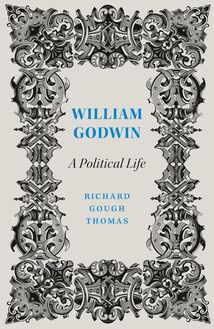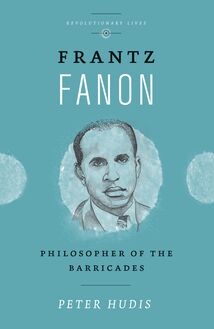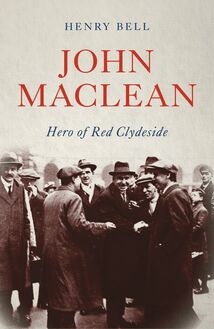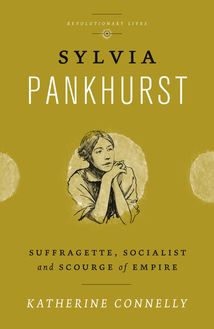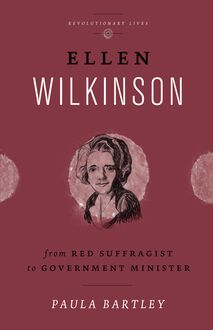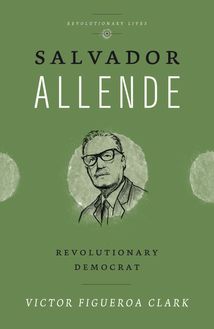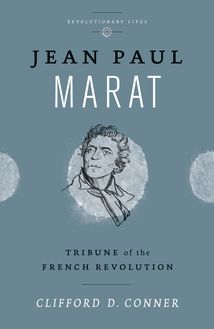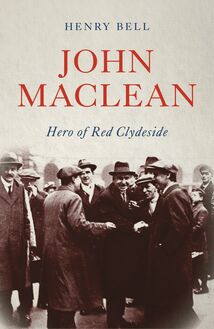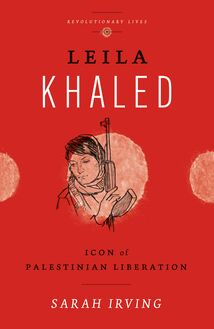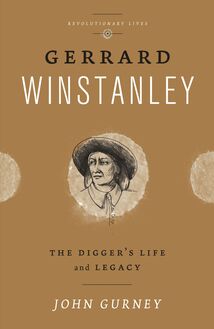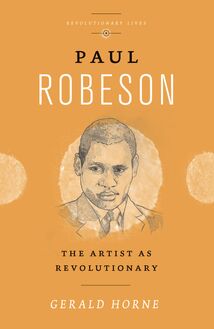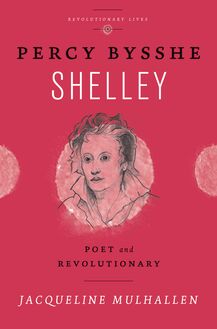-
 Univers
Univers
-
 Ebooks
Ebooks
-
 Livres audio
Livres audio
-
 Presse
Presse
-
 Podcasts
Podcasts
-
 BD
BD
-
 Documents
Documents
-
- Cours
- Révisions
- Ressources pédagogiques
- Sciences de l’éducation
- Manuels scolaires
- Langues
- Travaux de classe
- Annales de BEP
- Etudes supérieures
- Maternelle et primaire
- Fiches de lecture
- Orientation scolaire
- Méthodologie
- Corrigés de devoir
- Annales d’examens et concours
- Annales du bac
- Annales du brevet
- Rapports de stage
La lecture à portée de main
Vous pourrez modifier la taille du texte de cet ouvrage
Découvre YouScribe en t'inscrivant gratuitement
Je m'inscrisDécouvre YouScribe en t'inscrivant gratuitement
Je m'inscrisEn savoir plus
Vous pourrez modifier la taille du texte de cet ouvrage
En savoir plus

Description
In this intimate profile, based on interviews with Khaled and those who know her, Sarah Irving gives us the life-story behind the image. Key moments of Khaled's turbulent life are explored, including the dramatic events of the hijackings, her involvement in the Marxist Popular Front for the Liberation of Palestine (a radical element within the PLO), her opposition to the Oslo peace process and her activism today.
Leila Khaled's example gives unique insights into the Palestinian struggle through one remarkable life – from the tension between armed and political struggle, to the decline of the secular left and the rise of Hamas, and the role of women in a largely male movement.
Introduction
1. Haifa, Lebanon, Kuwait
2. Leila The Fighter
3. Black September
4. Marriage And Death
5. Revolutionary Women
6. Moving To Jordan And Returning To Palestine
7. Leila Khaled In The Future, Palestine In The Future
References
Index
Sujets
Informations
| Publié par | Pluto Press |
| Date de parution | 08 mai 2012 |
| Nombre de lectures | 1 |
| EAN13 | 9781849646741 |
| Langue | English |
| Poids de l'ouvrage | 1 Mo |
Informations légales : prix de location à la page 0,0498€. Cette information est donnée uniquement à titre indicatif conformément à la législation en vigueur.
Extrait
Leila Khaled
Revolutionary Lives
Series Editors: Brian Doherty, Keele University; Sarah Irving, University of Edinburgh; and Professor Paul Le Blanc, La Roche College, Pittsburgh
Revolutionary Lives is a book series of short introductory critical biographies of radical political figures. The books are sympathetic but not sycophantic, and the intention is to present a balanced and where necessary critical evaluation of the individual’s place in their political field, putting their actions and achievements in context and exploring issues raised by their lives, such as the use or rejection of violence, nationalism, or gender in political activism. While individuals are the subject of the books, their personal lives are dealt with lightly except in so far as they mesh with political issues. The focus of these books is the contribution their subjects have made to history, an examination of how far they achieved their aims in improving the lives of the oppressed and exploited, and how they can continue to be an inspiration for many today.
Published titles:
Leila Khaled: Icon of Palestinian Liberation
Sarah Irving
Jean Paul Marat: Tribune of the French Revolution
Clifford D. Conner
Gerrard Winstanley: The Digger’s Life and Legacy
John Gurney
www.revolutionarylives.co.uk
First published 2012 by Pluto Press 345 Archway Road, London N6 5AA
www.plutobooks.com
Distributed in the United States of America exclusively by Palgrave Macmillan, a division of St. Martin’s Press LLC, 175 Fifth Avenue, New York, NY 10010
Copyright © Sarah Irving 2012
The right of Sarah Irving to be identified as the author of this work has been asserted by her in accordance with the Copyright, Designs and Patents Act 1988.
British Library Cataloguing in Publication Data A catalogue record for this book is available from the British Library
ISBN 978 0 7453 2952 9 Hardback ISBN 978 0 7453 2951 2 Paperback ISBN 978 1 84964 673 4 PDF ISBN 978 1 84964 675 8 Kindle ISBN 978 1 84964 674 1 ePub
Library of Congress Cataloging in Publication Data applied for
This book is printed on paper suitable for recycling and made from fully managed and sustained forest sources. Logging, pulping and manufacturing processes are expected to conform to the environmental standards of the country of origin.
10 9 8 7 6 5 4 3 2 1
Designed and produced for Pluto Press by Chase Publishing Services Ltd Typeset from disk by Stanford DTP Services, Northampton, England Simultaneously printed digitally by CPI Antony Rowe, Chippenham, UK and Edwards Bros in the United States of America
For three generations of amazing women Meg, Cathy, Leila and Merryn And for Marc, Zoë and Viv
Contents
List of Illustrations
Acknowledgements
Introduction
1 Haifa, Lebanon, Kuwait
2 Leila the Fighter
3 Black September
4 Marriage and Death
5 Revolutionary Women
6 Moving to Jordan and Returning to Palestine
7 Leila Khaled’s Future, Palestine’s Future
Notes
Bibliography and Sources
Index
List of Illustrations
1. The iconic image of Leila Khaled
2 Members of the Popular Front for the Liberation of Palestine (PFLP) drinking tea during a training excercise, circa 1969
3. The iconic image of Leila Khaled on the Israeli Separation Wall at Bethlehem Checkpoint
4. Leila Khaled in a refugee camp in Beirut, circa 1974–5
5. Leila Khaled’s image on a mural located in the West Bank city of Beit Sahur
6. Leila Khaled at home in Amman, September 2008
7. Leila Khaled with Brazilian radical cartoonist Carlos Latuff at the World Social Forum in Nairobi, 2007
8. Image from The Hookah Girl zine in which artist Marguerite Dabaie explores her own experiences of growing up Palestinian-Christian in the USA
Acknowledgements
My thanks to Leila Khaled, Khalil Meqdisi, Linda Clair, Naim, Samer and the many other people, especially in Palestine and in the Palestinian diaspora, who didn’t want their names made public but who have shared their time, memories, thoughts, and hospitality with me; to all the Palestinians living under military occupation or separated from their homeland, whose steadfastness and courage should be an inspiration to all who believe in justice; to David Castle at Pluto Press for his immense patience; and to the International Solidarity Movement, for luring me to Palestine in the first place.
Introduction
August 29, 1969. A young woman, wearing a white suit, sunhat and big shades sits at Rome airport, awaiting flight TWA 840. She looks nervous but then so do many imminent flyers. But this Audrey Hepburn lookalike in her summer outfit has smuggled a gun and hand grenades past airport security, and is pretending not to know the man across the room. He is Salim Issawi, a fellow combatant of the "Che Guevara Commando Unit" of the Popular Front for the Liberation of Palestine (al-Jabhah al-Sha’biyyah li Tahrir Filastin). She is Leila Khaled. She is evasive but amiable to the fellow passenger trying to chat her up.
Leila Khaled and Salim Issawi force the plane to divert from its course to Athens and fly over Khaled’s birthplace, Haifa, a city which as a Palestinian refugee she can no longer visit. Scaring but not harming the terrified passengers, the plane is ordered to head for Damascus where its nose cone is blown up. The press are intrigued by the "girl hijacker," but months after the hijacking, Khaled is berated by the PFLP’s leader, George Habash, for refusing to speak to TV crews. Instead, she goes under the knife, undergoing six sessions of plastic surgery. She knows that more missions have been planned for her, and she doesn’t want to be recognizable.
September 6, 1970. Another young couple, travelling on Honduran passports, board an El Al Boeing 707 at Amsterdam. The man is Patrick Arguello, a Nicaraguan-American member of the Sandinista movement which nine years later will liberate Nicaragua from the dictator Somoza. The woman is, again, Leila Khaled.
The couple sit demurely in the second row of the tourist-class section of the plane, which is bound for New York. But as it heads over the English Channel, they try to force their way into the cockpit. Across Europe and the Middle East, several other airplanes are also being hijacked by teams from the PFLP, but this is the only plane where things go badly wrong for the assailants. The plane’s pilot uses a nosedive to throw the hijackers off balance, Arguello is shot dead, and Khaled is captured.
The iconic image of Leila Khaled: The Guardian’s Katharine Viner summed it up as: ‘[T]he picture which made her the symbol of Palestinian resistance and female power: the gun held in fragile hands, the shiny hair wrapped in a keffiah, the delicate Audrey Hepburn face refusing to meet your eye.’ (AFP/Getty Images)
Khaled and Arguello intended to join their comrades at Dawson’s Field, a defunct British RAF base in Jordan where the rest of the planes will spend the coming weeks, embroiled in an international incident which nearly plunges Jordan into civil war and stretches the already tense Middle East almost to breaking point. Instead, Leila Khaled spends the next month in London’s Ealing police station.
* * *
Despite her indisputable involvement in the hijackings, the prisoner exchange which eventually took place meant that Leila Khaled has never faced charges. She has been one of the best known Palestinian women, but has been condemned by some feminists for using the welfare of her nation’s women to promote a left-wing or nationalist political position. To some she is the glamorous icon of women revolutionaries, to others a heroic fighter for her country’s liberation, and to yet more a notorious terrorist to be vilified in the press and excluded from nations she seeks to visit. Her own sister, mistaken for her, was assassinated, but she remained committed to her political course. Leila Khaled’s life has run alongside the history of the modern State of Israel, in a condition of mutual hostility, and has been greatly shaped by the country she was forced to leave as a small child.
Leila Khaled’s public image has been almost entirely dictated by her great moment in history, the defining hijackings of 1969 and 1970. But since then she has been a wife and mother, a teacher and campaigner, a member of the Palestinian National Council and a leader in the General Union of Palestinian Women. Like many militants and those labeled "terrorists," from Northern Ireland to Nicaragua, she has moved from the armed struggle to the political arena, although she still says she would die for her country. Her iconic status has opened doors and made people listen to her, but it has also excluded her from countries who deny her entry and from people for whom she will always be no more or less than a terrorist.
Although Leila Khaled was allowed to visit Britain in spring 2002 for a number of speaking engagements, the fact that she has since been denied a visa illustrates the passions she still arouses. I first met Leila on her 2002 visit, at a small gathering at the Pankhurst Women’s Centre in Manchester. I had recently returned from working in the West Bank, during the Israeli army’s most ferocious attacks for years. President Arafat had been held captive in his own headquarters in Ramallah, while dozens of civilians from homes around Bethlehem’s Manger Square had endured six weeks’ siege in the Church of the Nativity, after they fled there alongside fighters taking cover from invading Israeli troops. In Jenin, an unknown number of families had been bulldozed into the rubble of their own homes, while the ancient city of Nablus had witnessed the destruction of historic buildings by Israeli forces trying to flush out armed Palestinians.
In this heightened atmosphere, the chair of the meeting pointed me out to Leila, who crossed the room, brought me to my feet and embraced me, saying that she wanted to smell and touch her homeland on someone who had visited it so recently.
Then in her late fifties, Leila
-
 Univers
Univers
-
 Ebooks
Ebooks
-
 Livres audio
Livres audio
-
 Presse
Presse
-
 Podcasts
Podcasts
-
 BD
BD
-
 Documents
Documents
-
Jeunesse
-
Littérature
-
Ressources professionnelles
-
Santé et bien-être
-
Savoirs
-
Education
-
Loisirs et hobbies
-
Art, musique et cinéma
-
Actualité et débat de société
-
Jeunesse
-
Littérature
-
Ressources professionnelles
-
Santé et bien-être
-
Savoirs
-
Education
-
Loisirs et hobbies
-
Art, musique et cinéma
-
Actualité et débat de société
-
Actualités
-
Lifestyle
-
Presse jeunesse
-
Presse professionnelle
-
Pratique
-
Presse sportive
-
Presse internationale
-
Culture & Médias
-
Action et Aventures
-
Science-fiction et Fantasy
-
Société
-
Jeunesse
-
Littérature
-
Ressources professionnelles
-
Santé et bien-être
-
Savoirs
-
Education
-
Loisirs et hobbies
-
Art, musique et cinéma
-
Actualité et débat de société
- Cours
- Révisions
- Ressources pédagogiques
- Sciences de l’éducation
- Manuels scolaires
- Langues
- Travaux de classe
- Annales de BEP
- Etudes supérieures
- Maternelle et primaire
- Fiches de lecture
- Orientation scolaire
- Méthodologie
- Corrigés de devoir
- Annales d’examens et concours
- Annales du bac
- Annales du brevet
- Rapports de stage
